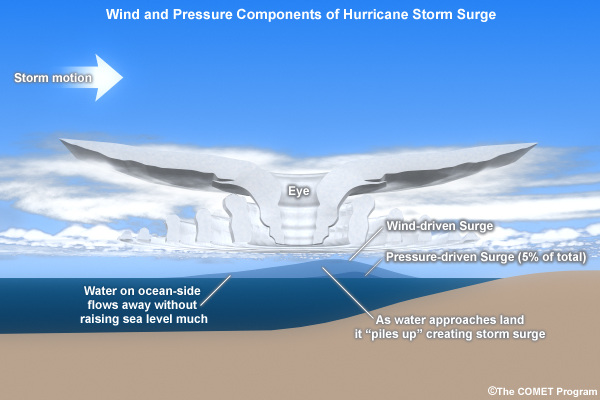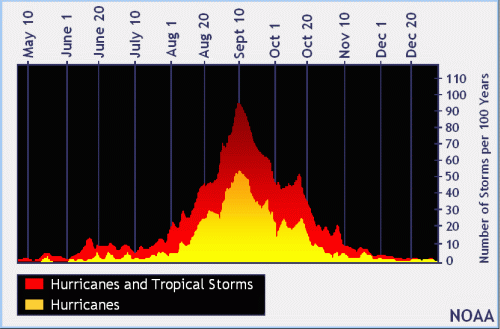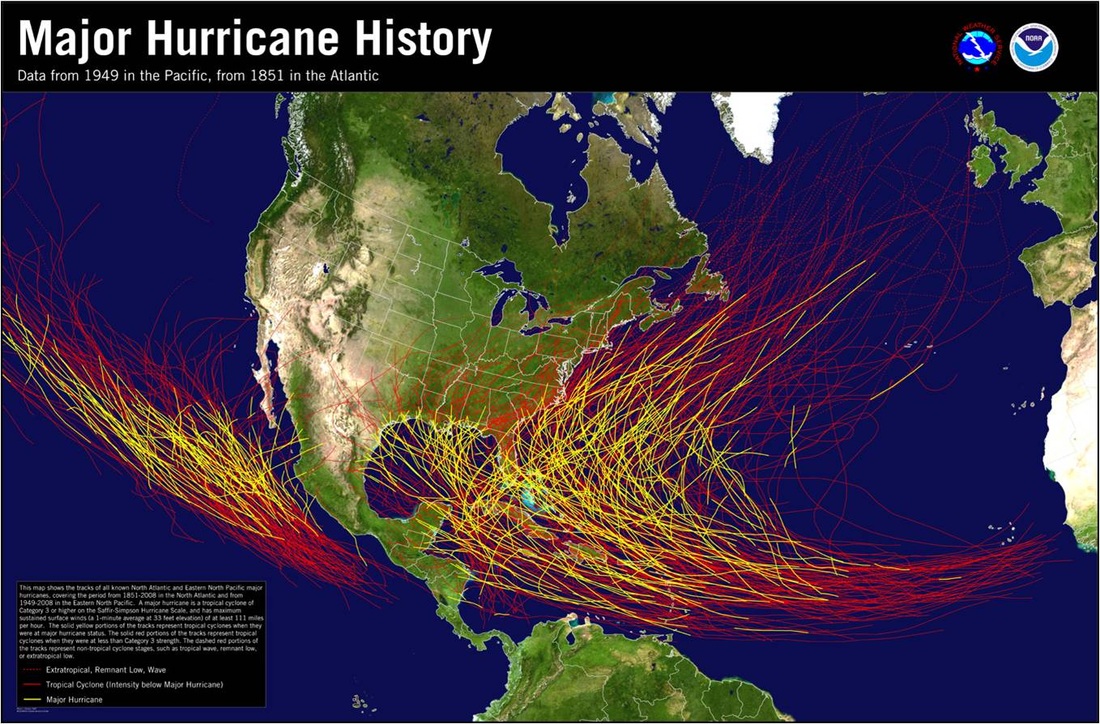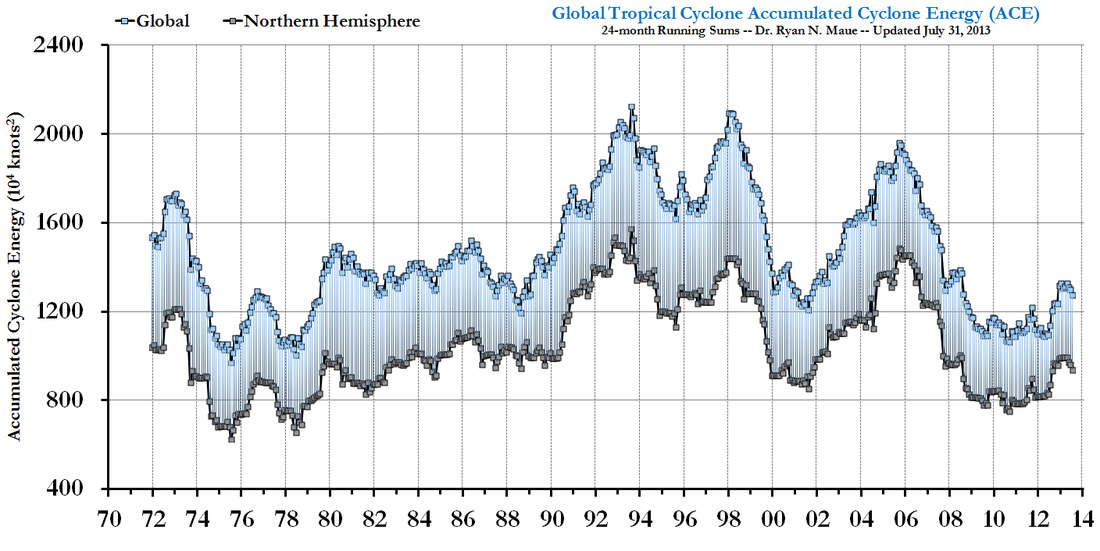What is a Tropical Storm?
|
Objective: To understand the science behind tropical storm formation.
Starter: Hurricanes are big news - Check out the compilation to the right! All the following tasks on the background to tropical storms can be completed using the worksheet. To access this, click on the blue tab to the right. Task 1 - Make a note of the following: Hurricanes: A tropical storm is a large low pressure system characterised by high winds and heavy rain. They are also known as typhoons in East and South-east Asia and cyclones around the Indian Ocean. To be classified as a tropical storm, winds must exceed 119km/hr (74 mph). Small low pressure systems are called tropical storms (63-118km/hr) and tropical depressions (0-62km/hr). Task 2 - Watch the second video - What are Tropical Storms? from the Met Office and study this excellent infographic. a. What are the different names given to tropical storms in different parts of the world? b. What are the 'key ingredients' of hurricane formation? c. In what latitudes do tropical storms form? d. Find out what latent heat means (not on video) e. Explain with the use of a diagram (hand drawn) how a tropical storm forms. f. How are tropical storms measured? g. Using the diagram to the right, explain how a storm surge occurs and the dangers it presents. |
|
Predicting Topical Storms
|
Objective: To study the progress in tropical storm prediction in the USA.
The following tasks for prediction and frequency can be completed using the worksheet to the right hand side. Task 1 - Watch the CBS YouTube video to the right. Outline how storms are tracked before they make landfall in the USA. Task 2 - Conduct some research into the National Hurricane Centre in the USA. Complete a brief 5W's case study on the organisation. Task 3 - Study the image to the right entitled 'Tracks & Intensity of All tropical Storms. Take a screen shot of the map and comment on the following: a. The differences in the pattern of tropical storm tracking movement between the northern and southern hemisphere b. The spatial distribution of category 3 or more tropical storms c. Explain why France only rarely experiences tropical storm events. Task 4 - Make a note of the following: The amount of damage caused by tropical storms can depend on a number of factors including:
However, even developed country's like the US can suffer massive damage. Hurricane Katrina which was category 5 caused widespread damage and loss of life despite warning and defences. |
Thanks to Harry for above video
Task 5 - Predicting Risk to Life
a. Which USA States and cities are most at risk in the the USA from hurricane activity according to the map above. b. Which Caribbean islands are most at risk? Task 6 - Using a copy of the graph to the left:
a. How long does the tropical storm season last for? b. Which time period sees the most hurricane activity? c. Describe the trend of hurricane events during a typical storm season d. When do Hurricane Forecast Centre staff take their holidays?! |
Tropical Storm Frequency
|
Task 1 - Describe the pattern of tropical storm activity between 1970 - 2013 (4) Task 2 - Describe the trend of tropical storm activity between 1970 - 2013. (4) Task 3 - Using the YouTube video to the right, explain the link between Global Warming and tropical storms as set out by Time magazine. |
|






